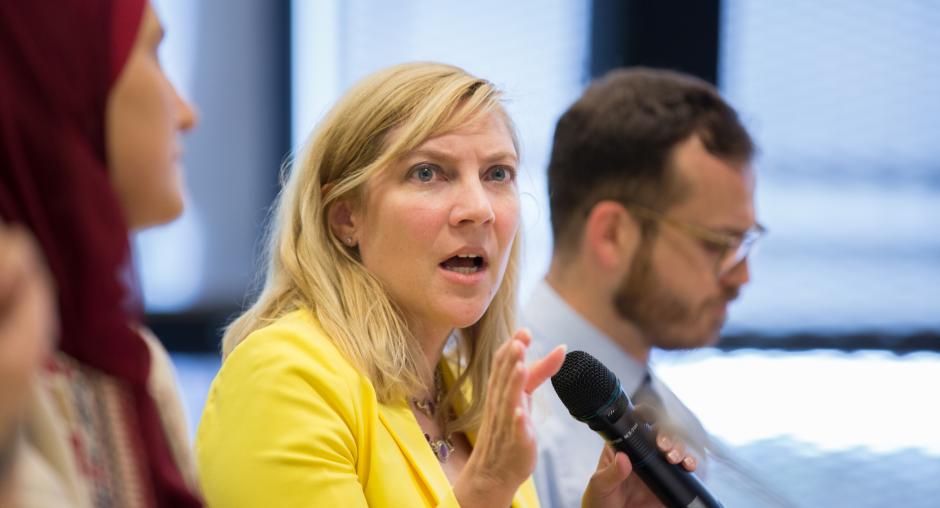Justice for hate crime victims through co-operation with civil society focus of ODIHR event

Hate crime continues to threaten the security of individuals and entire societies, as evidenced by 2018 data from the OSCE Office for Democratic Institutions and Human Rights (ODIHR) that was presented on 25 September 2019 in Warsaw. The presentation took place during ODIHR’s annual human rights conference, the Human Dimension Implementation Meeting.
“Victims of bias crimes need to see official recognition of the crime as a hate crime. Their needs differ based on how they were attacked, by whom, and on what grounds. But in these differences, all hate crime victims are also similar – being attacked simply for who they are,” said Cristina Finch, Head of ODIHR’s Tolerance and Non-Discrimination Department.
Participants were able to learn from those who work most closely with victims during a discussion with representatives of three civil society organizations providing support to victims of hate crime. They spoke about how victims often lack trust in the authorities and instead seek assistance from NGOs, raising questions about victims’ access to justice, protection and support.
Following an assessment of support for victims of hate crime across the region, ODIHR has concluded that OSCE participating States need to do more to build victim support structures to bridge the state-civil society divide. Police and other officials have to be able to understand the needs of hate crime victims and refer them to a suitable service, which often comes from civil society.
For this to happen, the event introduced the Enhancing Stakeholders’ Awareness and Resources for Hate Crime Victim Support (EStAR) project. It will start on 1 January 2020 and will be run by ODIHR and the Association of Counseling Centers for Victims of Right-wing, Racist and Anti-Semitic Violence in Germany (VBRG) – a coalition of 14 organizations providing support to hate crime victims. The EStAR project, funded by the EU Commission and the German government, will develop tools for states to build integrative hate crime victim support systems over a two-year period.
ODIHR’s finalized 2018 hate crime data will be published on 16 November 2019.
